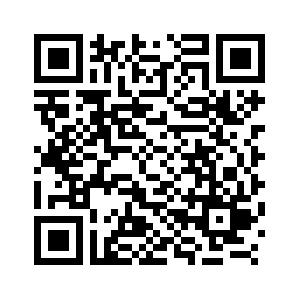GENEVA, Sept. 27 (Xinhua) -- Some so-called serious Western press are more insidious than the yellow press because what they are actually doing is just to spread hostile prejudice and intentions, a distinguished Irish scholar has said.
The reason behind this is to manage public opinion to create public acquiescence in the huge expenditure in military and quasi-military confrontations with so-called foreign powers, said Anthony Carty, a professor of International Law, in a recent interview with Xinhua in Geneva during the ongoing 54th session of the United Nations (UN) Human Rights Council.
Carty served as a professor at the University of Derby, University of Westminster, University of Aberdeen and the University of Hong Kong. He continues to be the editor-in-chief of the Online Oxford Bibliographies in International Law. He is an emeritus professor at the Beijing Institute of Technology School of Law and will be a visiting researcher at Peking University in the Spring of 2024.
"The question is whether these papers are part of a government strategy, how far they are linked to the intelligence communities and the military communities, and the higher political leadership of the countries," he said.
He cited the example of a "disgraceful article" on Taiwan recently published by a leading Swiss newspaper, which speculatively exaggerated "China's military threat to Taiwan." A photo of Chinese warships was included in the article.
The newspaper made no attempt to give a history of all the legal issues concerning Chinese mainland, Taiwan and the South China Sea, he said, adding that "all the legal issues are erased and not presented, while some detailed reporting is provided. So this kind of newspaper is more insidious."
He also cited the example of a British researcher who dedicated his life to learning Chinese, lived in China and then went back to work for the British parliament, then was slandered by a leading "quality" British newspaper that he may be under some direction from Chinese authorities to spy on the British parliament.
Another example he mentioned is that when the Chinese port city of Qingdao wanted to reach a partnership agreement with the German city of Kiel, one of the top German language newspapers said that Qingdao just wanted to steal German naval intelligence, as Qingdao is a big hub for the Chinese navy.
The expert also talked about human rights in China.
"My impression of China very much is of a society where the people do not live in a state of anxiety. They are not disturbed or afraid of being taken away in the middle of the night by the police," he said, adding that the picture of China's human rights situation in his mind is quite different from what one gets from some Western media.
He said that he was in Hong Kong in 2019 and witnessed the extreme violence of the demonstrations, but was surprised that the British press only reported that Hong Kong pan-democrats were being persecuted by the police.
Then the same double standard played out again in the implementation of the new national security law in Hong Kong, which is not analyzed in any objective way by Western media, he said.
"I would expect this from the yellow press, but not from the Guardian, not from the BBC, but this is the case unfortunately," said the scholar.
As a practicing Christian, Carty said that in Beijing, churches are open to anybody who wants to practice their religion without any restriction, but "you will find the point made hysterically in the West that there is huge oppression of religious freedom in China."
"A lot more research needs to be done before one is to make serious accusations that there are widespread human rights violations. It's a crucial area because that's the main stick that the Western government uses to make their populations actively hostile to China," he said.
Some Western politicians like to deny development and poverty relief as major human rights, while China has always insisted that development and human rights are interdependent and mutually reinforcing, he said.
"I think China shouldn't let itself be entangled in such debates. They are not in good faith," he said. ■



